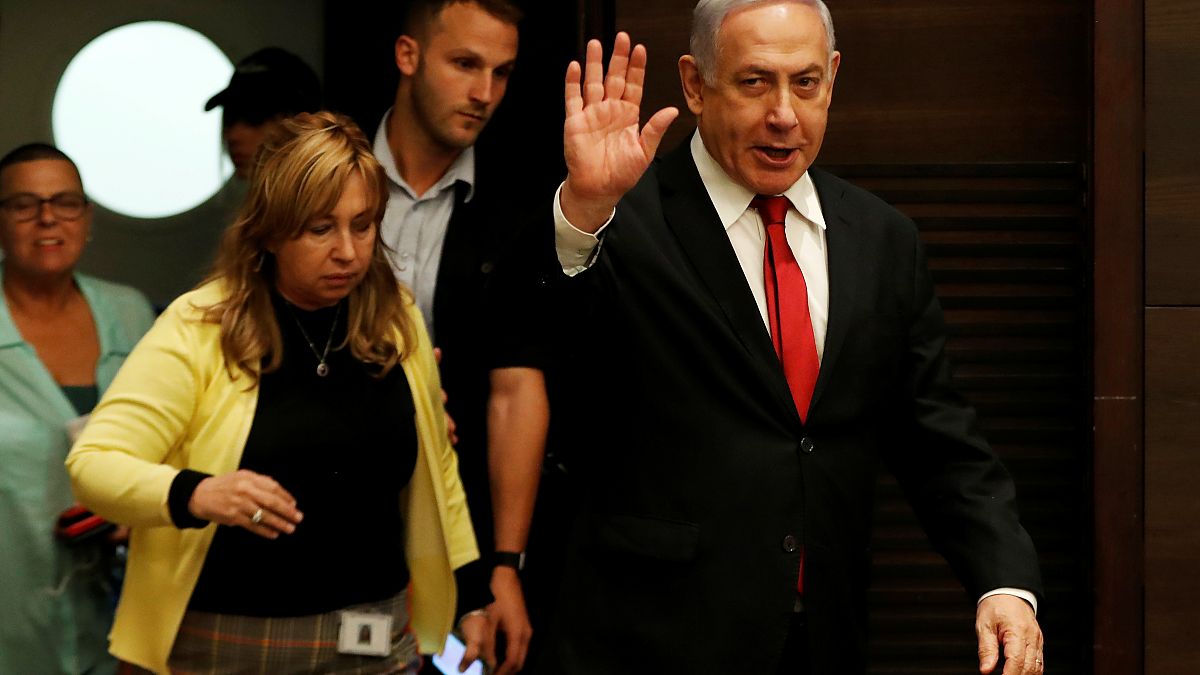Benjamin Netanyahu's fight for a fifth term is an existential struggle.
Benjamin Netanyahu shook the dice with his call for a second election in a year - and rolled snake eyes.
For the last 25 years, Netanyahu dominated Israeli politics, elected prime minister no less than four times since that first victory after the 1996 assassination of Yitzhak Rabin. Despite a decade in opposition from 1999, since 2009 the man known as ‘Bibi’ has reigned supreme.
Now many voices in the Israeli media are proclaiming the end of the Netanyahu era, after his desperate gamble to secure a majority in the Knesset backfired. The latest polls have his Likud party tied, once again, on seats with the Blue and White party led by Benny Gantz.
So what now?
Well, it is not yet clear whether Israeli President Reuvin Rivlin will ask either Netanyahu or Gantz to cobble together a coalition of 61 Members of the Knesset to form a government. And a result may not be imminent: Israeli law provides 28 days to form a government.
But what is in no doubt is that it will involve the third wheel in Israeli politics, Avigdor Lieberman.
The leader of the right-wing Yisrael Beytenu party, Lieberman used to be an ally of Netanyahu but has become his most vocal critic. Allied with Gantz and another Bibi rival, Yair Lapid, he wants a national unity government that includes Netanyahu’s Likud, but without Netanyahu.
He has been called a kingmaker in recent weeks but, says Hugh Lovatt, at the European Council of Foreign Relations, it is more apt to see him as a match-maker, bringing Likud and Blue and White into a coalition which would, ironically, negate the need for his support.
“Ultimately he may be a king slayer – as the person responsible for ousting Netanyahu from power,” Lovatt says.
Israelis — and anyone with even a cursory interest in Israeli politics — will be forgiven for feeling that they have been here before. Although Gantz is the most serious opposition Netanyahu has faced in a decade, the only way Bibi has stayed in power so long is by bringing together shaky coalitions of right-wing parties to get Likud to 61 seats.
Top Gantz
And while Gantz is a different face at the top of Israeli politics, the two men do not differ drastically on foreign policy. That said, European leaders will hope that the end of Bibi could mean progress for negotiations with the Palestinians, on which Netanyahu has alternated between ambivalence and intransigence over the past decade.
“Undoubtedly European states will breathe a sigh of relief and hope for a reset in relations with Israel should Netanyahu be ousted,” Lovatt says.
Netanyahu has traditionally fought and won his campaigns on security, whether that is concerns over a nuclear Iran or open hostility to Palestinians in Israel, the West Bank and Gaza. But the major electoral issue in 2019 has been corruption.
Bibi has denied all of the multiple allegations made against him in recent months and years, but is due to face a pre-trial hearing later this year. Gantz and his allies have hit the prime minister hard on graft, dubbing one campaign "Make Israel Normal Again".
Low turnout
Another difference this year has been an increase in Arab-Israeli voter turnout, with the Joint Arab List likely to take as many as 12 seats. Palestinian citizens of Israel — who make up a fifth of the population — have traditionally struggled with low turnout, but now face the prospect of entering the Knesset as the official opposition if a unity government is formed.
An official result in Israeli is hours — perhaps days away — but without Lieberman’s support it is difficult to see how Netanyahu can make the numbers work. As of Wednesday night, Likud were on 31 seats and Blue and White 32, with 90% of votes counted.
One thing is for sure: Netanyahu will fight hard for a historic fifth term, not least because losing power also means losing the judicial safe haven of high office. As a regular citizen, Bibi will no longer benefit from parliamentary immunity and could face even more scrutiny over his financial affairs and his actions while in office.
In that, this is not just a political, but an existential battle for Benjamin Netanyahu.


